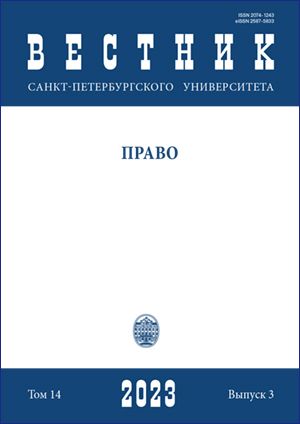Special rules against tax avoidance: Taiwan’s experience
DOI:
https://doi.org/10.21638/spbu14.2023.311Abstract
States and the territories implementation their tax rights in relation to the objects of taxation by concepts of taxation is determined. Tax conceptions to be applied primarily in relation to direct taxes are territorial and global. The territorial conception assumes that taxes are levied on the object of taxation originated or received in the state (territory). This conception is addressed to residents and non-residents. The global conception assumes that taxes are levied on the object of taxation regardless of the place of its origin. This conception is addressed to residents. Ideally, states and territories should limit their tax rights to income from national sources. Accordingly, the principle of non-double taxation will not be violated and there is no need for special rules. Initially, states and territories followed the territorial concept, but over time approaches have changed. As a result, the problem of tax avoidance has become the focus of attention. Their unilateral application does not give the desired result, and therefore international treaties are concluded or amended. Special rules against tax avoidance are on the agenda of the authorities of various states, including unrecognized ones. There is a certain specificity in the regulation in relation to unrecognized states and territories with a special status. Some of these entities are even members of international organizations, but do not have an extensive network of treaties containing tax provisions. In the given article, an attempt to systematize special rules against tax avoidance in Taiwan is made.
Keywords:
tax avoidance, transfer pricing, thin capitalization, limitation on benefits, beneficial owner
Downloads
References
Downloads
Published
How to Cite
Issue
Section
License
Articles of "Vestnik of Saint Petersburg University. Law" are open access distributed under the terms of the License Agreement with Saint Petersburg State University, which permits to the authors unrestricted distribution and self-archiving free of charge.






